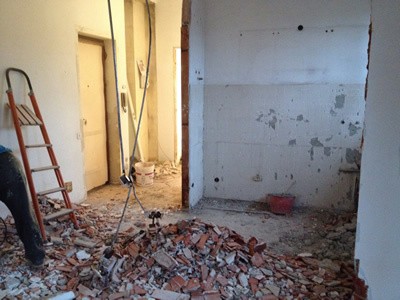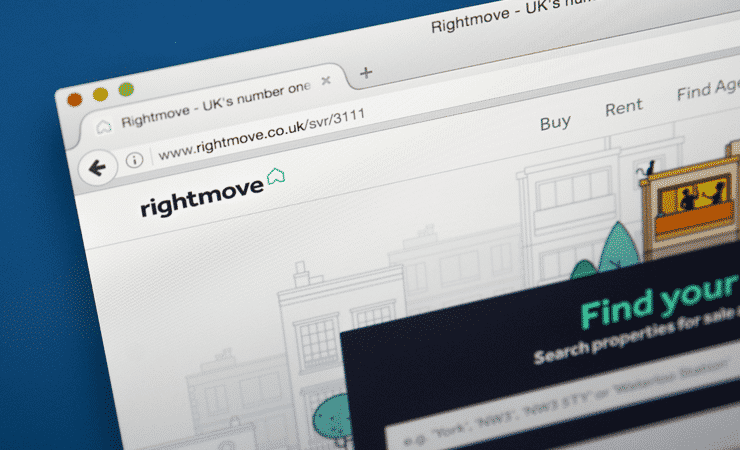How to Find Houses That Need Renovation: On Rightmove & Zoopla
For property investors seeking to add significant value to their portfolios, finding the right large renovation or small-scale refurbishment project can be the key to improving your return on investment, adding equity, and attracting the best long-term tenants.
Whether you're planning to undertake extensive structural improvements or focus on cosmetic updates, it is often said the money is made when you buy the property, ie: finding the right property investment opportunity and negotiating it for the very best price.
In this article we look at strategies for the first part of the process of finding properties with renovation potential on the UK's leading property portals like Rightmove and Zoopla.

-
by Robert Jones, Founder of Property Investments UK
With two decades in UK property, Rob has been investing in buy-to-let since 2005, and uses property data to develop tools for property market analysis.

Understanding Renovation Projects: Setting Your Scope
Before diving into property searches, it's crucial to understand what you're looking for. In the UK property market, renovation projects typically fall into two categories:
Full renovation projects often involve structural changes, solving subsidence, requiring more extensive work such as removing walls, adding extensions, rewiring, or replacing roofs. These projects typically offer the greatest potential for value addition but demand higher initial capital investment and often require planning permission, building regulations, and specialist knowledge (or at the very least, a very experienced team that includes an exceptional builder, surveyor, and architect).
Light renovation or refurbishment projects focus more on cosmetic improvements such as updating kitchens and choosing the right bathroom suites, replacing fixtures and fittings, or modernising décor. While these projects might require less capital and fewer permissions, they can still deliver attractive returns, as the improved property can attract a better long term tenant and increase the monthly rental income, providing a compounding return over time.
Which Renovation is Right for Your Strategy?
Once you know where your experience, contacts and budgets could fit, it is important to align that with your property strategy.
If your goal is short term flipping, then maybe you do not need to do any type of renovation, as speed is your most important criteria and simply buying and selling quickly (within a couple of months) is the best solution for you.
If your goal is longer term buy-to-let then do you really need to worry about the stresses of major building work. You can build a portfolio over time without adding extra risk. Instead a small scale refurbishment could be best to get the property up to standard and rented quickly so it generates an income.
For those investors focused on buy-refurbish-refinance then absolutely, the more value you can add with the refurbishment and larger scale renovation the better.
Spending the time to get a planning gain, undertake an extension or even a title split, can add significant value to your project and make the next step of financing easier to show the uplift in value to your mortgage lender. This is often the path that professional developers take and bridging finance is typically their short-term financing solution, as the property might be unmortgageable whilst they undertake the works. But remember this is not a route for beginners as it comes with increased risk (unknowns and stress).

How to Find the Best Renovation Projects Across the UK
There are only a handful of ways to find refurbishment properties:
- Off-market and direct to vendor
- On the major portals like Rightmove, Zoopla and On The Market
- Property Auctions
Each of these have their challenges, and if you are looking for the largest number of potentials to consider, then it is the UK property portals that provide the most opportunities and that is what we focus on here.
We have found the most successful property investors & developers we know, use a systematic approach that combines active searching with automated alerts to identify promising opportunities before other investors spot them. This method proves particularly effective in competitive markets, in major cities like London, Birmingham, Manchester, Leeds and Nottingham where renovation projects often attract multiple offers within days of listing from both homeowners and investors.
Step 1: Mastering the Active Property Search
The first phase involves conducting targeted searches using both Rightmove, Zoopla and On The Market effectively.
Unfortunately in the UK there isn't one portal that has 100% of the properties listed. Rightmove has the majority with maybe 80%+ coverage, but to find all the opportunities you will need to look across all of the portals.
Start by setting up your search parameters based on your investment strategy and local market knowledge. Here's how to optimise your search:
Set realistic price parameters based on your target area. For example, if three bedroom houses in your chosen Manchester postcode typically sell for £200,000 in good condition, searching up to £150,000 might reveal properties needing renovation while filtering out those priced at full market value.
When reviewing listings, focus on three critical indicators that often signal renovation and refurbishment potential:
First, analyse the number and quality of photos provided.
Properties with five or fewer images often indicate renovation potential, as estate agents typically showcase fewer images when a property needs work. A listing with just one or two external photos warrants immediate attention.
Second, study the external photographs carefully.
Look for signs that suggest update potential:
- Overgrown gardens or neglected exteriors
- Dated windows or doors
- Tired paintwork
- Broken rendering or exposed external wall insulation
- Missing or damaged guttering
- Old roof coverings
Third, examine property descriptions thoroughly.
Estate agents often use specific phrases that signal renovation potential:
- "In need of modernisation"
- "Requiring updating throughout"
- "Renovation opportunity"
- "Potential for improvement"
- "Would benefit from updating"
However, be cautious with properties advertised as "investment opportunities" that are currently tenanted - these might not offer the renovation potential you're seeking. There are tools within the portals where you can set 'keywords' but we have found these limiting and can sometimes miss some really great deals.
So there isn't a shortcut I am afraid to doing the work of checking the listings if you want to find the diamond in the rough.
Step 2: Setting Up Smart Property Alerts
The second phase involves creating a systematic approach to catching new opportunities as soon as they hit the market. It's unrealistic to think you'll be able to check the portals every day at the right time to spot the newest refurbishment deal, and thankfully you don't have to.
This is where alerts come in.
Create specific alerts for each postcode you're targeting on Rightmove, Zoopla and On The Market. For instance, if you're interested in buy-to-let in the Warrington area, set up separate alerts for WA1, WA2, and WA5 postcodes, adjusting the price parameters for each postcode based on local values.
To manage these alerts effectively:
Create a dedicated email address specifically for property alerts and agent communications. This keeps your property search organised and prevents your personal inbox from becoming overwhelmed with listings.
Schedule specific times to review new listings. This could be daily, every 2-3 days or weekly, depending on your own availability and schedule. This disciplined approach helps you balance responsiveness with efficiency while ensuring you don't miss promising opportunities.
Step 3: Finding Renovation Properties at Auction
Property auctions represent an often-overlooked source for finding renovation projects, particularly those that traditional estate agents struggle to sell. Auction properties frequently include unmortgageable properties, those with structural issues or properties requiring significant modernisation.
The auction process offers distinct advantages for renovation buyers. Unlike traditional sales that can take many months, the entire auction process from catalogue release to completion typically takes just 6-8 weeks. This speed can be crucial when you've identified a promising project, as you're not competing with the uncertainty of lengthy chains or potential gazundering.
When evaluating auction properties, the same principles apply as portal searching. Examine the limited photography carefully, look for descriptive phrases indicating work needed, and be prepared to move quickly.
Remember, auction purchases require additional preparation as you'll typically need to complete within 28 days of the hammer falling and when the hammer falls you will have exchanged contracts, making it essential to have your renovation team, financing, and planning permissions ready before you even start bidding.

Moving Quickly in Competitive Markets
In buoyant markets, speed often determines success. Properties requiring renovation frequently attract multiple viewings within hours of listing. When you identify a potential project, contact the estate agent immediately to arrange a viewing. Many renovation properties receive multiple offers within their first week on the market, so quick action is essential.
It is super important to be ready before you view too. Make sure you have your property checklist ready so you can review the deal correctly and have your financing arrangements in place before making offers.
This positions you as a serious buyer and can give you an edge in negotiations, particularly in competitive situations. Consider the estate agents and sellers point of view.
Would they prefer an offer from someone that has their financing, refurb team and architect ready to go or someone that is asking for time to see their bank manager for the first time to see what is possible.
Sellers like speed and certainty.
Ready to Find Some Run Down Houses?
Login to your Rightmove, Zoopla and On The Market accounts today and set up those crucial property alerts.
Remember to start with a specific postcode area you know well, and gradually expand your search as you become more confident in spotting potential renovation projects.
Finding houses that need renovation isn't just about searching property portals - it's about having a systematic approach that helps you identify and act on opportunities quickly.
If you are unsure on what locations to consider, you can check out our location guides to see the latest property data including house price growth and rental yields for Cities, Towns and Postcodes across the UK.
You can also use these free property tools to help with your daily searching that will speed up your approach and help identify opportunities much quicker.
